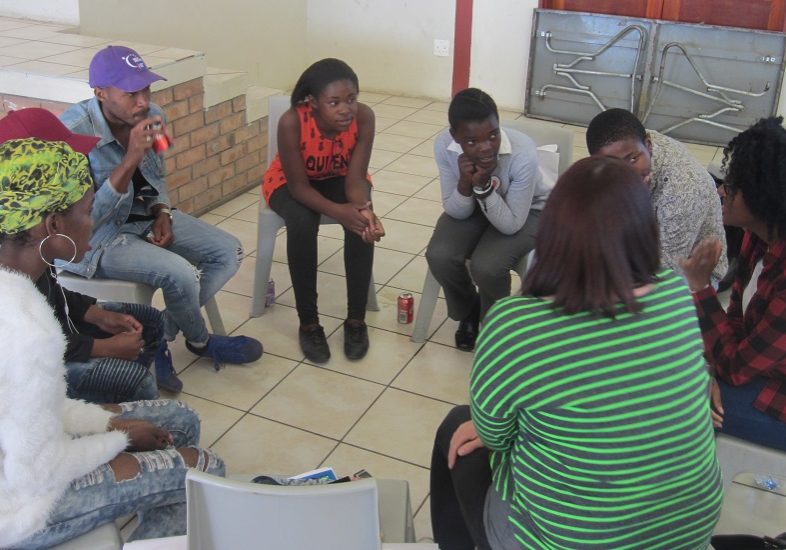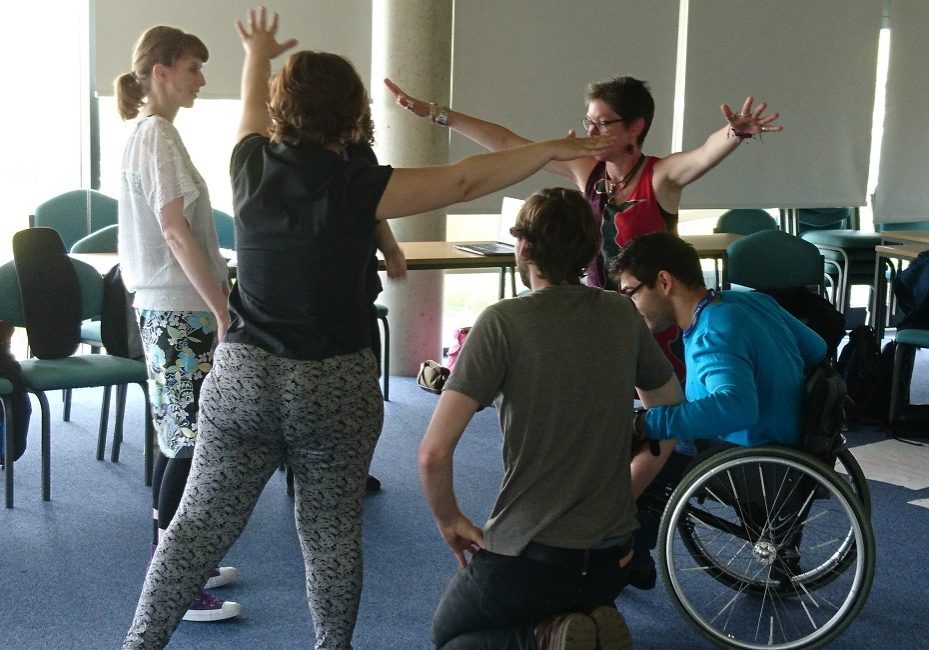Patterns of Resilience to Drought Research Project
The expertise of young people in South Africa in relation to coping with the physical and mental impacts of drought was harnessed for this co-productive research project led by Professor Angie Hart.
Natural disasters negatively impact upon the social, economic, and environmental systems that affect young people’s mental health and wellbeing. The impacts of drought on young people are particularly severe in sub-Saharan Africa where recurrent drought intersects with development challenges such as inequality, exclusion, poor education and a lack of employability skills.
Read our findings in the policy briefing paper, which every team member was involved in producing: ‘United We Stand’ (2018).
Watch our film about the characteristics that make people resilient to drought-related stress and how policymaking can support some of these characteristics of resilience: ‘United We Stand Film’ (2018).
Project team and funding
Professor Hart’s team focussed on young people in the South African municipality of Govan Mbeki in this key multi- and cross-disciplinary research project. Our researchers collaborated closely with international partners including Khulisa Social Solutions, Boingboing and leading academics in the UK, South Africa and Canada.
Khulisa Social Solutions is a community organisation in South Africa supporting youth-led health and social care interventions. Young people with lived experience of adversity, from the UK-based social enterprise, are also involved. Other academics joining in with the research include Dr Clare Kelso from the University of Johannesburg, Professor Liesel Ebersöhn, Dr Motlalepule Mampane and Professor Linda Theron from the University of Pretoria (UP). Professor Theron is leading the South African team.
The Government’s Global Challenges Research Fund (GCRF) awarded funding of £166,000 to enable our team to work with partners to improve understanding about what enables young people to withstand, adapt to, resist or challenge these impacts. Details relating to the project were announced online by all three research councils supporting the project:
“A number of UP students completing their professional Masters degrees in Educational Psychology have committed to working in this project. The research focus, arts-based activities and partnerships with local and UK youth researchers will support these students to develop the necessary skills to be practitioners who are responsive to the needs and strengths of young clients challenged by the impacts of climate extremes and structural disadvantage.” – Professor Linda Theron, University of Pretoria
Project time-frame
This research project commenced in November 2016 and ended in February 2018.
“Our strategy used drama to share knowledge and develop collective approaches to environmental challenges and opportunities. We worked alongside the South African youth researchers and a youth activist, learning from them. They identified a creative medium of their choice through which to communicate their emergent resilience strategy to relevant stakeholders. As a UK artist and co-researcher who’s been working with Boingboing for years in the UK, I learnt a lot from being involved in this exciting new venture.” – Lisa Buttery, co-researcher from Boingboing

Project aims
The overarching aim of the research project was to find the best ways to help young people communicate their resilient responses to drought, and find ways that adults, governments and indeed young people themselves could ‘change the odds’ which put young people at risk. The research team:
- Used a blend of approaches from the sciences, arts and social sciences, together with information from archived newspapers, colonial records and rainfall data, to produce a timeline of droughts from the mid-nineteenth century.
- Worked with a community partner and local masters students to encourage young people from Govan Mbeki to use arts-based activities to explore and communicate their personal, family, community, cultural, and environmental responses to times of drought.
- Shared the timelines of drought severity with each young person and supported them in approaching one adult to gather historical narratives of drought-related changes to their community to explore how the community coped with these challenges.
The academic team, students, youth and community organisations used the data generated from these activities to co-produce a strategy to support the resilience of young people to drought-related challenges. This strategy used drama to share knowledge and develop collective approaches to environmental challenges and opportunities. The youth researchers have been supported to identify a creative medium of their choice through which to communicate their emergent resilience strategy to relevant stakeholders.
“I have learnt team working skills, everything we did, we did it as a team, a unit. I also gained researching skills, analysing and being hypothetical about drought and research in general. I have decided to be more hands on and I need to teach people about drought and lack of infrastructure, so I want to take the initiative and teach them about differentiating between the two.” – Xolani Tressure Mfusi, Youth Co-worker, Patterns of Resilience to Drought, Leandra
Project findings and impact
These issues have been identified as central to the Patterns of Resilience to Drought project:
- The general failure to implement existing drought policy in South Africa
- The absence of youth in developing and implementing policy
- The worsening effects of climate change and drought
- Weak government and community
After a series of workshops facilitated by postgraduate students from Pretoria and community facilitators from the UK, a group of young people in Leandra developed their own ideas and gathered information from older people in the community. This was used to generate important responses to drought, addressing the challenge of finding mechanisms for communication with those responsible for policy and government activity.
Young people were vital members of the research team
“As young people from Leandra, we set about understanding our role in times of drought, as well as our potential to effect change where necessary.”
“Forty-nine of us contributed our personal and community perspectives on resilience to drought. Drawing on arts-based data collection approaches we were trained by 15 postgraduate students from South Africa, supported by academics from South Africa and the UK. Four young British community-based coresearchers with personal experience of overcoming complex life challenges, and of undertaking research on resilience, were also involved. South African co-researchers were trained to undertake research on the perspectives of elders in their community and were supported in communicating findings to policymakers.”
Young people from Leandra researched what they, their community, government and other policy-makers could do about the problem of drought, developing messages that they want policymakers to hear.
We used visual and performance art to mobilise youth views
Art can be used for social change in many diverse ways in activism, research, for therapy, for community building, and in resisting oppressive regimes. In our research work in Leandra, art involving the coproduction of images, story boards and videos was used to uncover, and translate for wider audiences, the characteristics of youth which make them more resilient to drought-related stress.
Our co-produced art outputs provide a base to communicate with policymakers and others who might have relevant inuence. We hope they can be used by policymakers to assist and support young people in Leandra and beyond, to be resilient in the face of drought.
Art, as a way of making meaning, as communication and research, translated our Leandra youths’ strengths and resilience. This is art as collective expression and art for social change. This is art as a driving force for communication.
We investigated the impacts of drought in Leandra
Two University of Brighton climate scientists were involved in the investigation. The study used monthly rainfall measurements from 29 weather stations from across Gauteng and southern Mpumalanga. The measurements were used to identify when and how often droughts occurred, demonstrating that rainfall for the last 130 years varies a lot from year to year and drought is common.
Through our youth co-researchers we also collected the experiences of the further impacts of drought on communities such as the effects on employment and education. We discussed them together whilst making our film.
Together we made a film so that youth from our project could show the world what they think should be done about drought
In June 2017, some of our project co-researchers, who are all young people living in Leandra, created images and stories for our film. The film shows which of their characteristics and those of their families, communities and physical environments make them resilient to drought-related stress. In our film, the youth also imagined how policymaking can support some of these characteristics of resilience.
We co-produced a strategy to support the resilience of young people to drought-related challenges
Read our United We Stand project publication to find out more about Resilience among young people in a community affected by drought.
“The UK project team felt excited and privileged to be working with our South African community partners and academics on this grant. Having learnt a lot from South African young people, we are looking forward to applying that learning to other contexts. We intend to use the approach and findings of this study as the basis for a future large-scale investigation that will assess the relevance of our results to young people in other drought-stricken communities in South and sub-Saharan Africa.” – Professor Angie Hart, University of Brighton
Other articles related to the Patterns of Resilience to Drought project
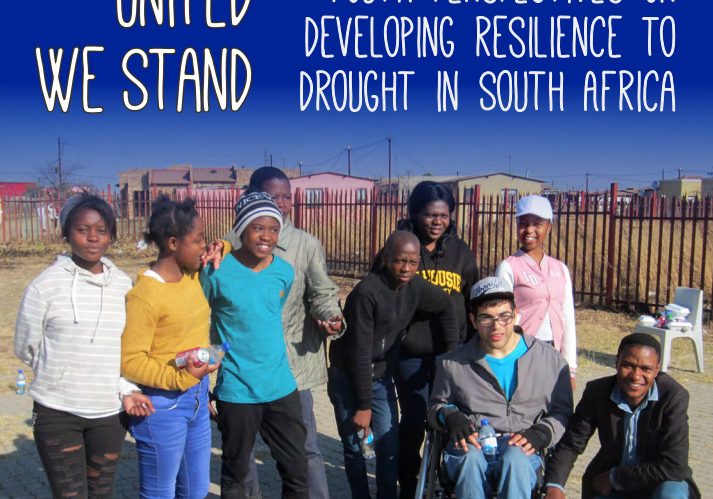
United we stand Film: Youth perspectives on developing resilience to drought in South Africa
United we stand is a policy briefing paper produced by all the team members involved in the co-productive research project led by Professor Angie Hart on Youth perspectives on developing resilience to drought in South Africa.
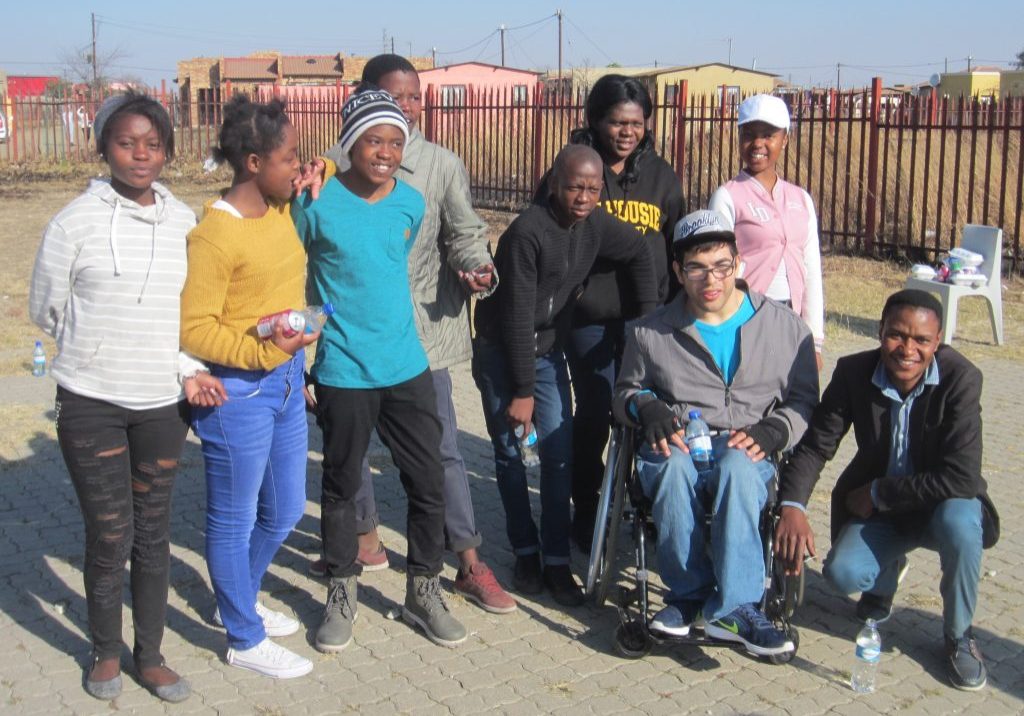
Co-producing research and policy in South Africa – 27 September 2018 – Brighton Resilience Forum
This Resilience Forum is about a recent research project that used arts-based methods to work co-productively between young people in South Africa, the UK and academics in both countries. The aim of the research was to better understand the complex relationships between drought, social-ecological systems and young people’s resilience in South Africa.
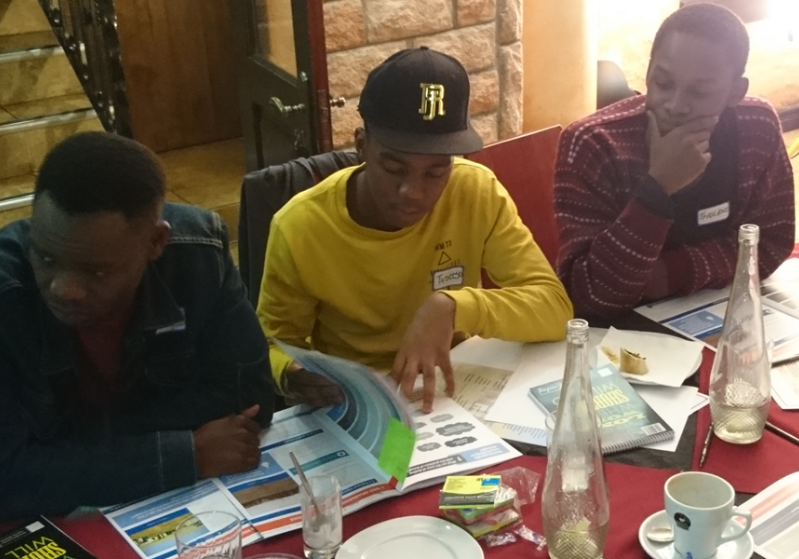
Final ‘Resilience to drought’ project visit to South Africa blog
We are back in South Africa, but, unfortunately for the final time regarding our Resilience project. I cannot believe that our project has actually come to an end.
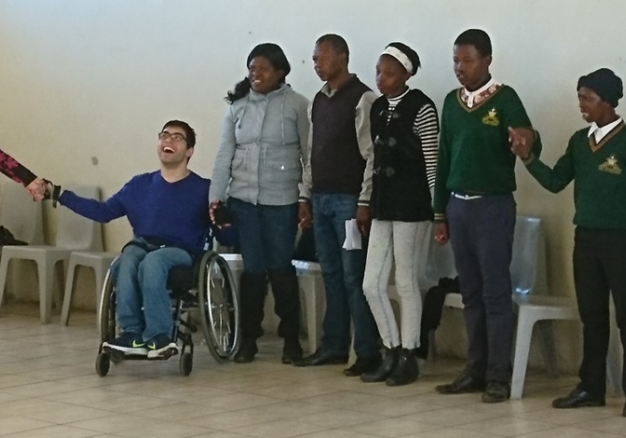
Collective perspectives on co-production from Leandran co-researchers blog
This blog is a collective effort; Leandran co-researchers give their perspectives on the co-productive approach we used to research drought in South Africa.
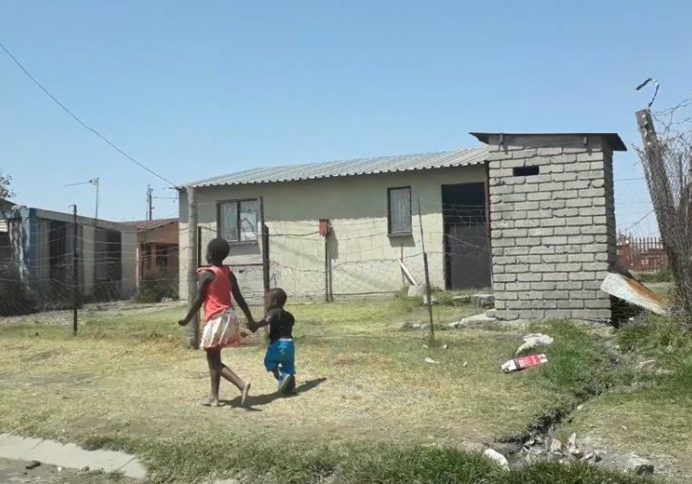
Co-produced Film Premier in Leandra and RYSE Project in Secunda blog
On Monday morning we returned to Leandra for our final visit of the project, this time we were joined by Josh who is an apprentice from Blackpool HeadStart, in the UK, as a young co-researcher.
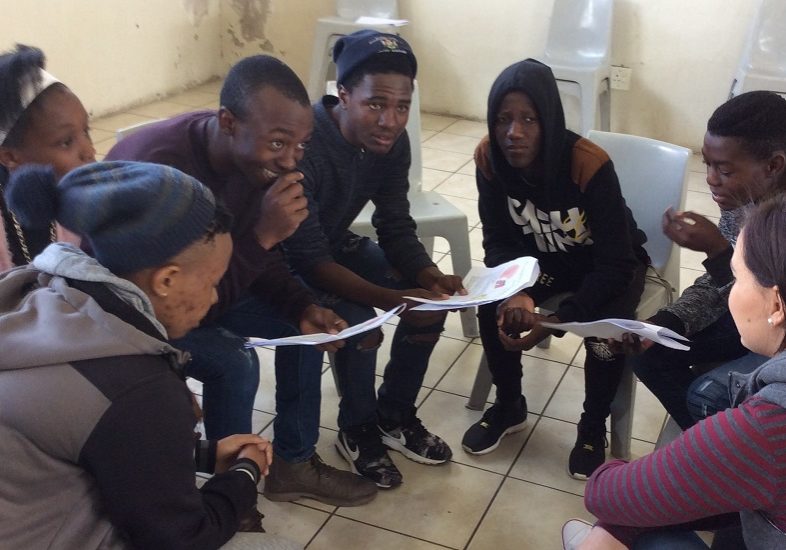
Coding our research data in Leandra blog
We began the task of coding all the data. Coding is the process of finding and grouping mentions of specific words and phrases, into common themes across lots of data. In this case it’s the group of transcripts that altogether add up to over 200 pages of data.
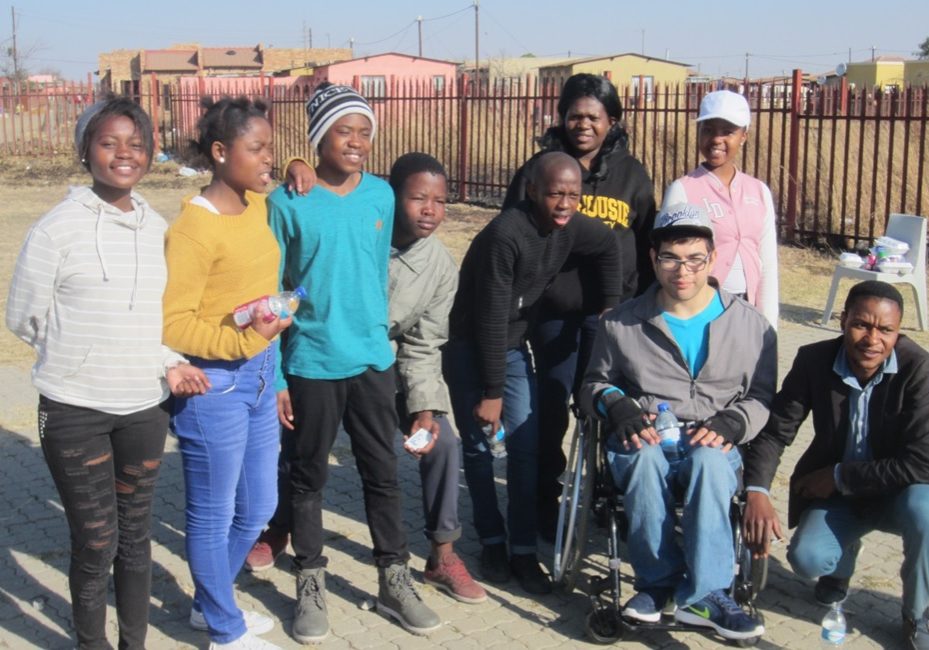
Image film-making workshop in Leandra blog
On Day 2 in Leandra, South Africa, as part of our Resilience to Drought project, Simon supports an image film-making workshop with young co-researchers exploring drought, led by Selogadi Mampane
![United-We-Stand-booklet-header-only Read their messages in the pdf booklet ‘United We Stand’ [3Mb]](https://www.boingboing.org.uk/wp-content/uploads/2024/06/United-We-Stand-booklet-header-only.png)
